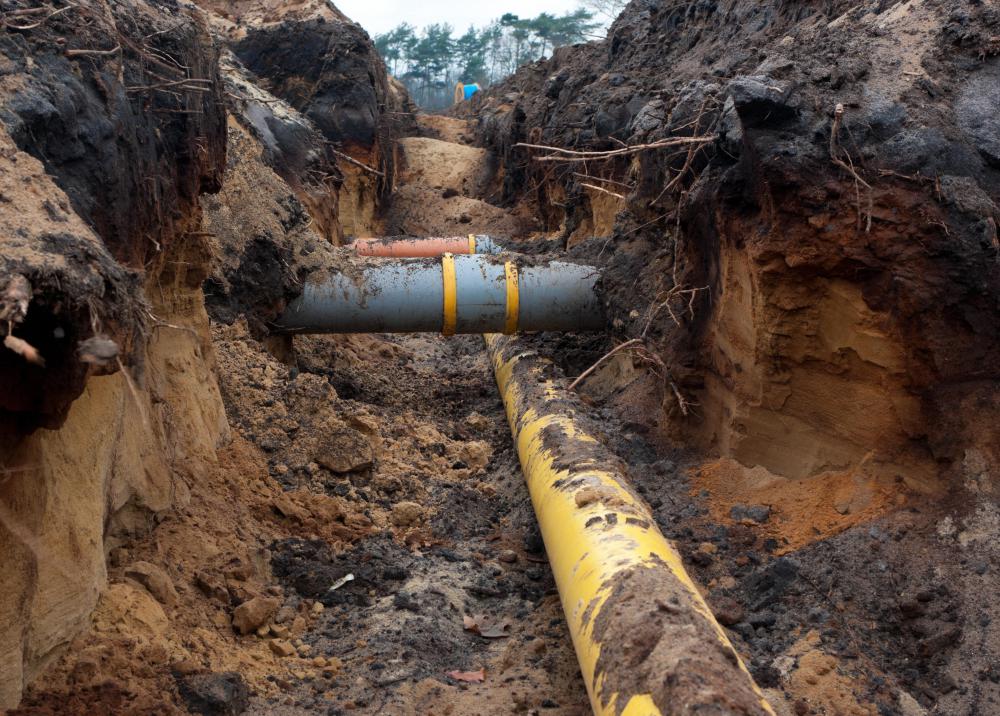At PracticalAdultInsights, we're committed to delivering accurate, trustworthy information. Our expert-authored content is rigorously fact-checked and sourced from credible authorities. Discover how we uphold the highest standards in providing you with reliable knowledge.
What does a Wastewater Engineer do?
A wastewater engineer performs a variety of tasks related to the design, maintenance and repair of wastewater treatment systems. This can include everything from drains and pipes to chemical treatment plants. Professionals work to achieve a safe discharge of used water, properly treat it, and safely dispose of it. In most developed cities, this involves sewer systems; in more rural areas, it usually involves septic systems. Wastewater engineering is a sub-discipline of the larger environmental engineering field, which includes other areas such as solid waste management, pollution prevention and ecology.
A wastewater engineer must be able to conceptualize and practically assess residential sewers, septic systems and water treatment centers in order to design, implement and maintain them. Professionals work to design and maintain systems that handle large quantities of wastewater, setting up efficient and effective processes to detoxify it and remove the harmful byproducts of raw sewage before sending it back into waterways. Newer systems are ever-more dependent upon computer aided design (CAD) and other technological tools, and virtually all sewage systems are monitored via computers. Technological savvy therefore is an increasingly important asset among wastewater engineers.

Careers in wastewater engineering can be either public or private-sector in nature. State and local governments often have their own wastewater departments, but many outsource the work to private contractors. Regardless of whether employed by a private firm or a municipality, wastewater engineers must be familiar with and make their designs comply with applicable government regulations, which inevitably vary from jurisdiction to jurisdiction.

A wastewater engineer must have at least a bachelor's degree in some field of engineering. Engineers hoping to move up in the profession typically need to earn at least a master's degree. The costs of such an education are typically worth it, however, as wastewater experts can make a lot of money over the course of a career. Most areas require engineers of all stripes to be licensed or certified, which along with the existence of professional associations, lends a degree of job security to the career.

The job of managing wastewater has changed dramatically over the course of history. The ancient Romans put great stock in fresh water delivery and efficient sewage systems, and designed highly sophisticated ways of transporting water over long distances. During the Medieval period these ways were lost, and as a result public health and the quality of life for all but the richest and most important suffered. It would not be until the 18th and 19th centuries that techniques a modern wastewater engineer would recognize were developed.
AS FEATURED ON:
AS FEATURED ON:
















Discuss this Article
Post your comments